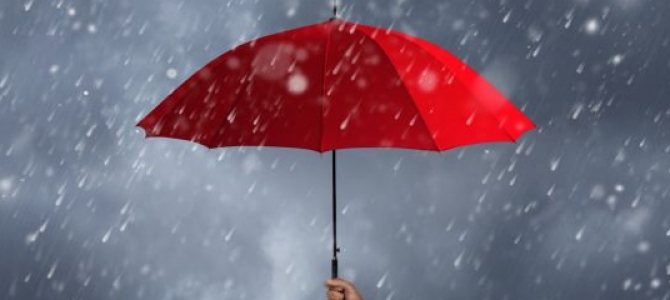 Shopping Cart
Shopping Cart
08 November 2024
Exploring the Rising Trends of Average Rainfall Data Worldwide

Global rainfall patterns are becoming more unpredictable, with some regions experiencing heavy rainfall while others face droughts. Monitoring these trends is key for sustainable water management.
At Smart Water, we're not just passionate about helping homeowners and businesses monitor their water tanks efficiently; we're also deeply invested in understanding global water trends.
Whilst we are focused on bringing our market-leading water tank level indicator to markets across the world, we are also acutely aware of the reasons why more and more people are switching to rainwater harvesting as a way of taking control of their water supply.
People harvest rainwater for a variety of reasons. In hot countries where water restrictions can be put in place during the summer months, having access to your own clean water supply can help with a variety of things around the home such as watering the garden, cleaning the car or even doing your laundry.
In other countries, harvesting and filtering rainwater is a way of ensuring a clean and healthy water supply for homes and businesses when municipal water may be in short supply or may not be as reliable.
Our goal at Smart Water is to make it easier for people with a rainwater harvesting system to actively monitor their supply and keep track of their usage, helping people conserve water in a more measured way and take advantage of the natural supply of water that falls from the sky.
Today, we're diving into the fascinating world of average rainfall data and its implications for water management.
Global Rainfall Patterns: A Changing Landscape
Recent years have seen significant shifts in rainfall patterns worldwide, with some regions experiencing increased precipitation while others face prolonged droughts. These changes have far-reaching consequences for water availability and management strategies.
No matter where you live in the world, it seems like rainfall patterns are changing. Whether you are seeing more or less rain than previously, understanding the data and the causes of the changes can help you to mitigate against potential risks in the future, either of running out of clean water or the impact of too much water that is not harvested or managed properly.
Here is the data for some of the key markets that we supply water tank level indicators:
United States: A Tale of Two Extremes
The United States has been experiencing a notable increase in extreme precipitation events over the past few decades. While the overall annual precipitation has increased by approximately 4% since 1901, this change isn't uniform across the country. The Northeast and Midwest have seen the most substantial increases, while parts of the Southwest have experienced decreases in annual rainfall.
Key Observations:
- More frequent heavy downpours in many areas
- Longer dry spells between rain events in some regions
- Increased variability in seasonal precipitation patterns
In such a vast country, it is perhaps no surprise to see shifting patterns across the different States, however, it is in the US that people are turning to rainwater harvesting in their masses as a way of better managing their water supply.
Australia: Adapting to Unpredictability
Australia, known for its diverse climate, has been grappling with significant rainfall variability. Recent data shows a trend towards increased rainfall in northern Australia, particularly during the wet season, while southern Australia has experienced a decline in cool-season rainfall.
Notable Trends:
- Northern Australia: Increase in wet season rainfall
- Southern Australia: Decrease in cool-season rainfall
- More frequent extreme rainfall events across the continent
As neighbours across the ditch, we have seen the impact of changing weather patterns in Australia over the past decade with huge rain events causing severe flooding in some parts contrasted by wild fires and extreme heat in other parts of the country.
New Zealand: A Wetter Future?
Here in New Zealand, we've observed some intriguing changes in our rainfall patterns. The National Institute of Water and Atmospheric Research (NIWA) reports that annual rainfall has increased in the west and south of the South Island and decreased in the northeast of the North Island over the past century.
Key Findings:
- Increased annual rainfall in western and southern regions of the South Island
- Decreased rainfall in northeastern parts of the North Island
- Projections suggest more frequent intense winter rainfalls in many parts of the country
New Zealand is more settled than our neighbours in Australia, however, this doesn’t mean we are immune from weather events. The recent floods that impacted Auckland, the Hawke’s Bay and other parts of the country indicate that we too must be aware of changing weather patterns and put in place measures to mitigate against the impact of those weather events.
Rainwater harvesting can play a crucial role in this, helping to take away some of the stormwater run off and prevent landslides in the future.
Implications for Water Management
These changing rainfall patterns underscore the importance of effective water management strategies. At Smart Water, we believe that accurate monitoring of water resources is crucial for adapting to these changes.
The Role of Smart Water Tank Level Indicators
Our wireless water tank level indicators provide real-time data on water levels, helping users make informed decisions about water usage and conservation. By combining this technology with knowledge of local rainfall trends, homeowners and businesses can:
1. Optimise rainwater harvesting during periods of increased rainfall
2. Implement water-saving measures during dry spells
3. Plan for long-term water security in the face of changing climate patterns
Looking Ahead
As global rainfall patterns continue to evolve, the need for smart water management solutions becomes increasingly critical. At Smart Water, we're committed to providing cutting-edge technology to help our customers navigate these changes effectively.
By staying informed about rainfall trends and utilizing advanced monitoring systems, we can all play a part in ensuring sustainable water use for generations to come.
Remember, every drop counts – and with Smart Water, you'll never lose track of a single one.
Frequently Asked Questions
How are global rainfall patterns changing and what regions are most affected
Global rainfall patterns are becoming increasingly variable, with some regions experiencing more frequent heavy rainfall and others facing prolonged droughts. For example, the US sees more extreme precipitation in the Northeast and Midwest, Australia experiences wetter northern regions and drier southern areas, and New Zealand reports increased rainfall in the west and south of the South Island with decreases in the northeast of the North Island.
Why is monitoring rainfall data important for water management?
Monitoring rainfall data provides critical insights for effective water management. By understanding changes in precipitation, water authorities, businesses, and researchers can predict periods of water scarcity or excess, optimize rainwater harvesting, plan irrigation schedules, and develop strategies to mitigate flooding, drought, and other climate-related impacts.
What role does technology play in adapting to shifting rainfall trends?
Technology, such as wireless water tank level indicators and real-time monitoring systems, helps track water resources accurately. By combining rainfall data with smart monitoring, it is possible to optimize water storage, detect shortages or overflows early, and develop adaptive strategies that respond to changing climate patterns efficiently and sustainably.
